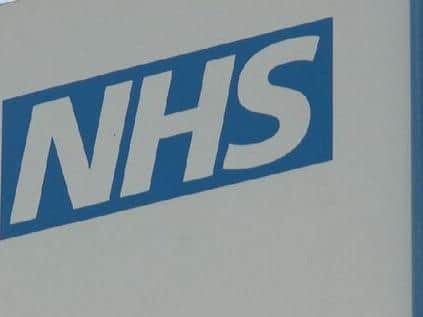Chorley and Preston patients discharged from clinics after "not engaging" over Covid fears
and live on Freeview channel 276
A governing body meeting of the Greater Preston and Chorley and South Ribble clinical commissioning groups (CCGs) was told that some people had shown “a reluctance” to visit the region’s two hospitals since the pandemic struck back in March.
However, Chorley GP Dr. Satyendra Singh said that some of his patients had received letters advising them that they had been discharged from hospital care after “not engaging” with clinicians.
Advertisement
Hide AdAdvertisement
Hide Ad“I think the hospital needs to review those letters – they should give an [alternative] appointment.


“There have been instances where people have…said that because of Covid, they are not willing to come [to hospital] now. But they are getting letters saying they have been discharged.
“So we are in a position of re-referring them again - and that is not a good utilisation of GP time,” said Dr. Singh.
Preston GP Dr. Sandeep Prakash said that a lot of patients had unavoidably been put into a “holding pattern” while efforts were made to return hospital services to some level of normality, after most non-urgent work was suspended in the spring in order to deal with the expected influx of Covid cases.
Advertisement
Hide AdAdvertisement
Hide Ad“I do sympathise with clinicians at the hospitals. However, they could possibly improve their communications – it does feel like some of the letters are cut and paste as a standard response when a discussion or plan could be slightly different [for each patent],” he said.
However, Lancashire Teaching Hospitals (LTH) – which operates the Royal Preston and Chorley and South Ribble Hospital – was praised by Chorley and South Ribble CCG chair Dr. Lindsey Dickinson for keeping patients up-to-date if they face a delay in their treatment as a result of the pandemic.
“Their letters suggest to patients that if they no longer need the appointment - because the problem has resolved itself – that they make sure it gets cancelled to reduce the [waiting] lists. But for patients where things have got worse, [they advise] how to escalate that [problem], ideally through LTH rather than using [GPs] as a fallback.”
The number of Central Lancashire patients on hospital waiting lists has actually declined since March, but so too has the proportion being treated within the target time of 18 weeks, as a result of the halting of services – down from 82 percent to around 66 percent.
Advertisement
Hide AdAdvertisement
Hide AdSome patients are being freshly triaged by LTH, but Dr. Dickinson said that in the majority of cases, the priority was to use clinician time to work through the backlog rather than to reprioritise waiting lists. She said that GPs could reassess a problem “should things have changed” during a patient's wait – and attempt to speed up a referral if necessary.
GPs have now also been given direct email access to consultants for advice and guidance about individual patients, with the aim of preventing an unnecessary referral, while still getting the individual the specialist advice they need.
The meeting heard that surveys of patients across Lancashire had shown that their health priorities have changed during the pandemic.
“There is anxiety around what the new [hospital] experience will be like – people almost have to be guided back into places that they were familiar with,” said Healthwatch boss Sue Stevenson.
Advertisement
Hide AdAdvertisement
Hide Ad“I think it’s a real problem, where some people who ought to have treatment will miss it - but it’s also an opportunity for people that thought [certain] things were very important to perhaps be supported in a different way, which will perhaps help to ease some of the congestion we know is inevitable,” she said.
Responding to the issues raised in the meeting, a spokesperson for LTH said: “The Trust has been working hard to ensure patients receive detailed communications during the Covid-19 pandemic and we are pleased that the CCG has acknowledged this.
“On 24th March, we updated our Patient Access Policy in relation to Covid-19 and referral to treatment guidelines. This includes circumstances such as declining appointments, patients who do not attend appointments and cancellations; however, referral back to the GP is always a clinical decision, based on the individual patient’s best clinical interest.
“We have a close working relationship with our CCGs and have clear communication pathways for these concerns to be highlighted and reviewed on a case-by-case basis.”
TESTING WAIT
Advertisement
Hide AdAdvertisement
Hide AdIn common with the rest of the country, waiting time performance for diagnostic tests in Central Lancashire has collapsed during the pandemic.
Between March and May, the latest month for which figures are available, the proportion of patients who received a test in the target six-week timeframe fell from 71 percent to 14 percent in the Greater Preston area and 66 percent to 11 percent in Chorley and South Ribble.
Preston GP Dr. Ewa Craven said that patients awaiting specialist nerve-conduction tests had been particularly hard hit.
"They are having quite significant discomfort and waking up at night [in pain].
Advertisement
Hide AdAdvertisement
Hide AdAt the moment, it seems physios are contacting them instead and doing a bit of a holding [arrangement], but that still doesn’t solve the problem," she said.
An LTH spokesperson said: “The neurophysiology team, in line with recommendations, stood down most elective work during the peak of our Covid response. In common with other areas, they are prioritising the most urgent investigations.
"As a group, they have been looking at the most effective model for handling lower priority requests in the future, to ensure that patients and referring clinicians are kept informed.”
Comment Guidelines
National World encourages reader discussion on our stories. User feedback, insights and back-and-forth exchanges add a rich layer of context to reporting. Please review our Community Guidelines before commenting.